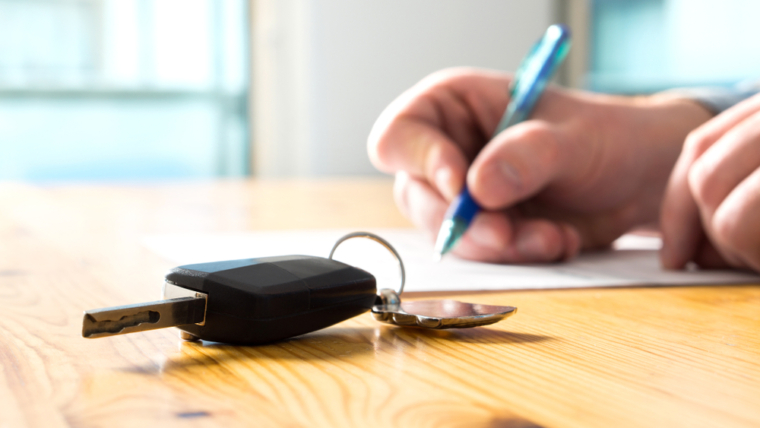A lienholder is a person or entity that has a legal interest in the vehicle or property until the loan or debt is fully paid off. Using a lienholder to your advantage can be an excellent choice in getting a vehicle. However, this can be a complicated process… Our expert credit analysts and financiers at FA Financing can help you make an informed decision!
Lienholders are most commonly associated with car loans, mortgages, and other types of secured loans. For example, when a person takes out a car loan to buy a vehicle, the lender becomes the lienholder on the vehicle. The lienholder can be a bank, a finance company, or any other party that has provided financing for the purchase of the car. The lienholder holds the right to repossess the vehicle if the borrower fails to make payments as agreed upon in the loan or financing agreement. Once the loan or debt is paid off, the lienholder’s interest in the car is released and the borrower becomes the sole owner of the vehicle.
Why Might Someone Use a Lienholder?
Access to credit: If you have a low credit score or a history of financial difficulties, it can be more challenging to get approved for loans or credit cards. However, if you have collateral to offer, such as a car or house, you may be able to secure a loan or line of credit from a lienholder.
Lower interest rates: Loans that are secured by collateral often have lower interest rates than unsecured loans because the collateral reduces the risk to the lender. This means that you may be able to pay less in interest over time if you use a lienholder to secure a loan.
Structured repayment: When you take out a loan from a lienholder, the terms of repayment are typically more structured and predictable than they would be for an unsecured loan. This can help you plan your finances and stay on track with your debt repayment.
How Much Power Does a Lienholder Have?
Lienholders can legally require you to purchase specific insurance coverage like collision and/or comprehensive insurance that they find more suitable. This can be collision coverage which will help you pay for repairs if the car is involved in an accident and is damaged. Comprehensive coverage helps with repairs involving damage like a fire or a natural disaster or even theft. These specific coverages ensure the lienholder is protected if the vehicle is damaged or stolen. The lienholder may also determine your car insurance deductible amount, how much liability coverage you have, and, in many cases, will appear listed on the insurance policy. registration and title.
It is important to note that if the borrower defaults on the loan meaning they don’t make their payments as they’ve agreed to, the lienholder will have the right to repossess the vehicle.
However, once the borrower has successfully paid off the loan in its entirety, they become the sole owner of the vehicle meaning they then have full control over important decisions like whether or not they need more extensive car insurance like collision coverage and comprehensive coverage.
Can I Use a Family Member as My Car Lienholder?
In general, a family member can act as a lienholder on a car, as long as they are willing to loan you the money and have a legal agreement in place to secure their interest in the car. However, it’s important to note that the process of using a family member as a lienholder can be complex, and there are some potential legal and financial risks that you should be aware of.
First, if you are borrowing money from a family member to purchase a car, it’s important to have a formal loan agreement in place that outlines the terms of the loan, including the amount borrowed, the interest rate, and the repayment schedule. This will help to protect both you and your family member in the event of a dispute or default.
Once you have a loan agreement in place, you can use the car itself as collateral to secure the loan. This means that your family member will have a legal claim on the car until the loan is paid off in full. If you default on the loan, your family member may be able to repossess the car and sell it to recover their money.
It’s important to note that using a family member as a lienholder can be risky, as it can potentially strain your relationship if you have trouble making payments or default on the loan. It’s important to be clear and upfront about your financial situation and to have a clear plan in place for repaying the loan.
Can I Buy or Sell a Car with a Lien?
It is possible to buy or sell a car with a lien, but there are some important considerations to keep in mind. If you are buying a car with a lien, you will need to work with the seller and the lienholder to ensure that the lien is satisfied before the vehicle can be legally transferred to your name. This may involve paying off the lien in full or negotiating with the seller and lienholder to come up with an acceptable arrangement.
If you are selling a car with a lien, you will need to ensure that the lien is satisfied before you can transfer ownership of the vehicle to the buyer. This may involve paying off the lien in full or working with the buyer and the lienholder to come up with an acceptable arrangement.
In both cases, it is important to work with a qualified and experienced professional, such as a licensed car dealer, to ensure that all requirements are met and that the transaction is completed in a way that protects your interests.
Final Thoughts
Whether or not you should use a car lienholder depends on your specific financial situation and goals. Lienholders can be very beneficial to a person looking to secure a car. Before using attempting to use a lienholder, it’s important to consider your ability to repay the loan, as well as the potential risks and benefits. If you decide to finance a vehicle, FA Financing can help you figure out what interest rates and repayment terms will work best for you.
Contact us online today or by phone at (858) 752-9835 to find your next vehicle!


